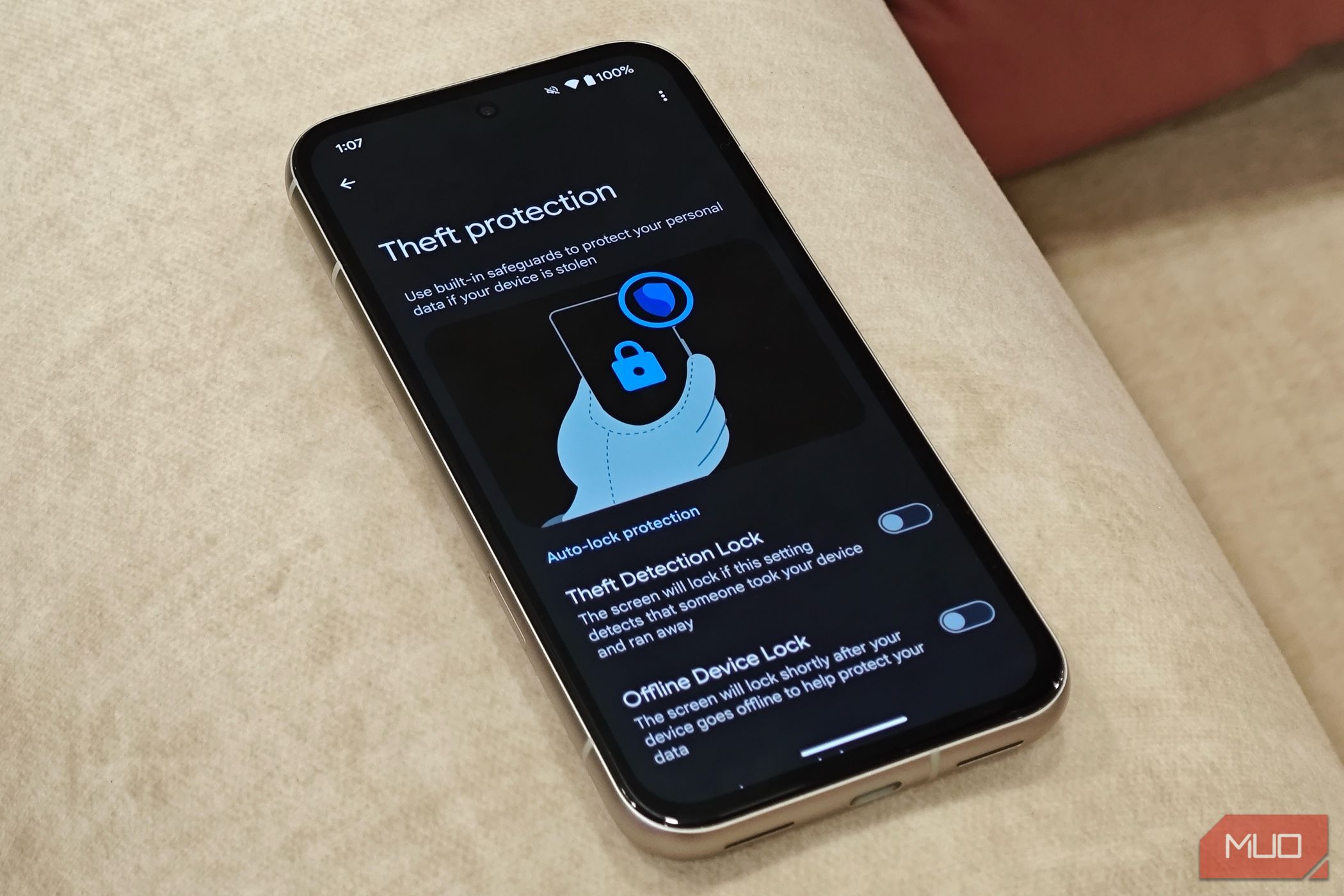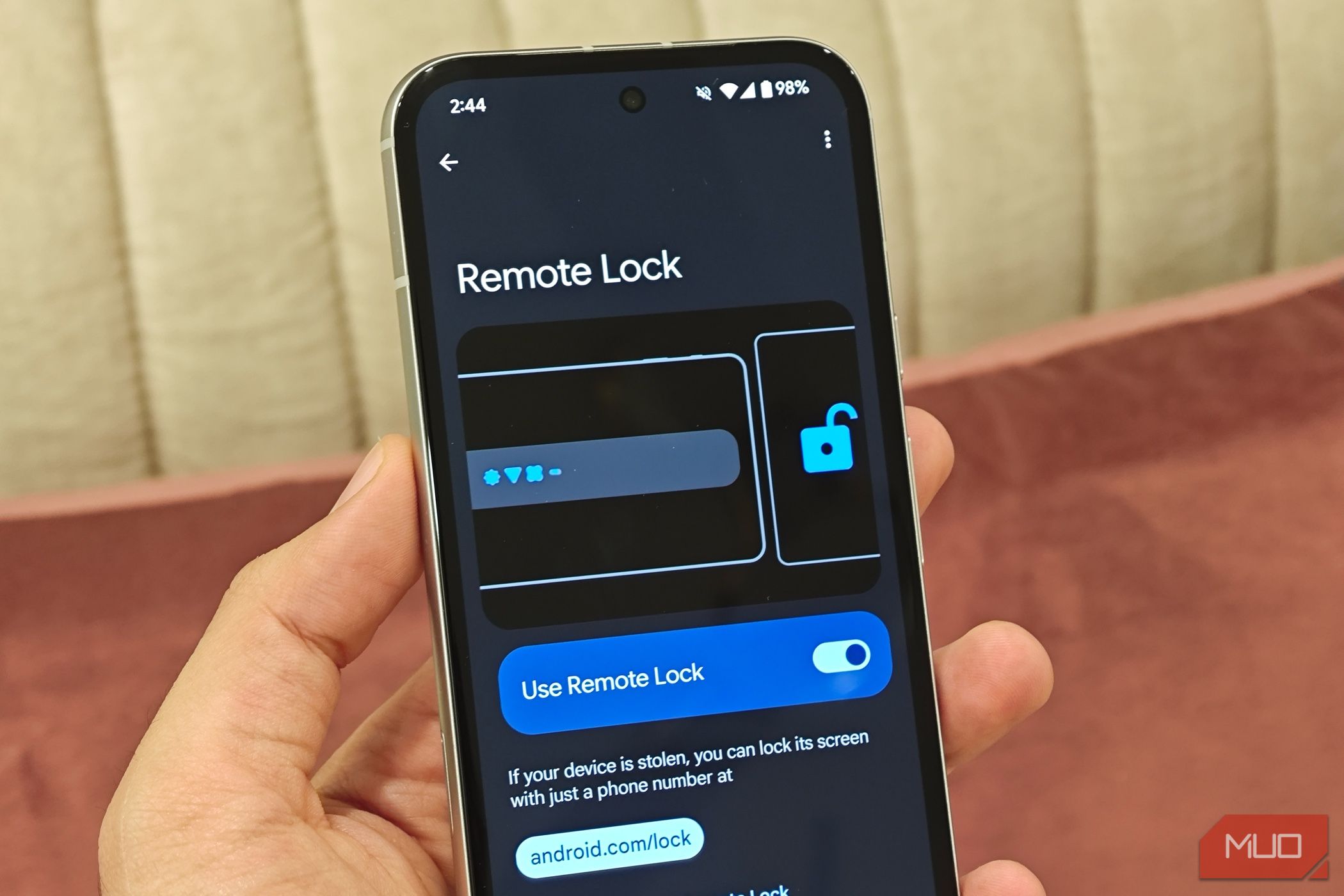Quick Links
Having your phone stolen puts all your personal data at risk. Google is taking steps to address this issue by rolling out new theft protection features for Android, designed to safeguard personal information if someone snatches your device.
What Are Android’s Theft Protection Features, and How Do They Work?
Until now, Google hasn’t provided robust built-in protection for lost or stolen devices. While Find My Device allows you to locate, lock, and erase your Android device remotely, Android hasn’t offered native features specifically designed to protect against theft. Google is addressing this gap by introducing a trio of on-device safety features to secure your data if your device falls into the wrong hands.
The first new feature is called Theft Detection Lock. If your device detects sudden, suspicious movement while it’s in use and unlocked—such as someone grabbing your phone and running away—it will automatically lock the screen. Google explains that this feature triggers when “common motion associated with theft” is detected, using data from the device’s sensors, Wi-Fi, and connected devices to determine if your phone has been stolen.
Next, we have Offline Device Lock, which automatically locks your phone even when it’s not connected to the internet. This is useful if someone steals your device and turns it off to disable location tracking. It also kicks in when someone repeatedly enters the wrong password. However, your phone must be actively used while it’s unlocked.
Rounding out the trio is the Remote Lock feature. Once enabled, you can lock your device’s screen remotely by visiting android.com/lock and entering your phone number. To use Remote Lock, users must pass a security challenge and enter the same phone number that was active on the device.
Remote Lock requires a working SIM card to function properly.
Once you activate Remote Lock, you can only unlock the device using the original screen lock method. Google says this feature gives you extra time to recover your account details and access Find My Device, such as sending a factory reset command to wipe the device completely.
How to Set Up Theft Protection on Android
Google is gradually rolling out these new features to all devices running Android 10 or later. We’ve noticed the feature appearing on our Pixel 8a but not yet on our Pixel 9 Pro XL or Xiaomi 14, suggesting a phased rollout. However, all devices should eventually receive the update. Some features may also appear at different times—I only had access to Theft Detection Lock and Offline Device Lock initially, but Remote Lock showed up a few days later.
Setting up the theft protection features is straightforward. Simply open the Settings app and search for “theft protection.” Alternatively, you can navigate to Google services and select Theft protection. Here, you’ll see a list of safety features. I recommend enabling all the options for maximum security. Just toggle each feature on, and you’re good to go.
While these features aren’t foolproof, they can significantly reduce the damage if someone steals your device. Google hopes these safety features will eventually deter thieves and decrease smartphone theft altogether. For now, these tools can help safeguard your data and provide some peace of mind, even if your device ends up in the wrong hands.



